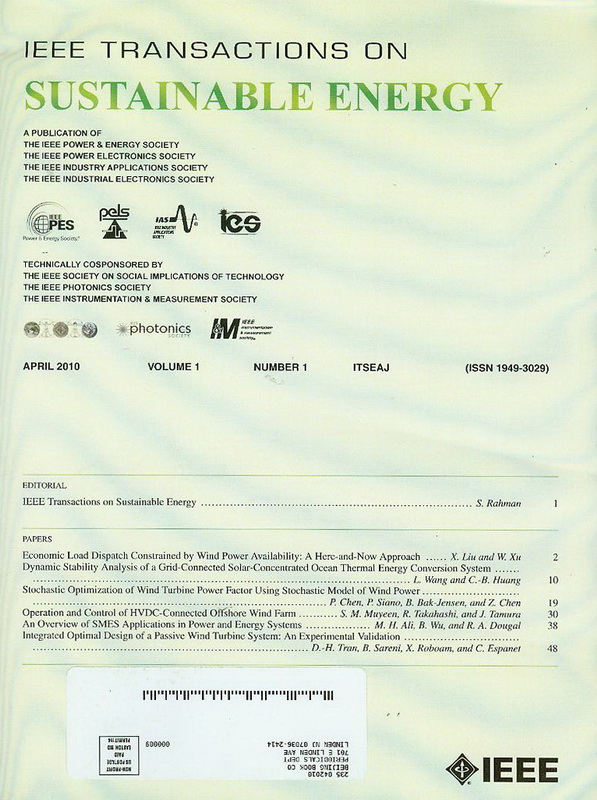Globally Optimal Distributed Operation of Integrated Electric and Heating Systems
IF 8.6
1区 工程技术
Q1 ENERGY & FUELS
引用次数: 0
Abstract
Unit commitment (UC) is a key player in the coordinated operation of integrated energy systems. However, the participation of multiple market entities with widely different characteristics in large-scale energy systems has urged the critical need for the application of a distributed scheme to the UC problem. The NP-hard UC problem is a challenging mixed-integer programming problem. The presence of a large number of binary variables in the UC subproblems, which are solved by each participating entity after implementing the UC decomposition, fails to guarantee the convergence and the optimality of existing solution methods. To bridge this gap, this paper proposes a distributed method, using logic-based Benders decomposition (LBBD), for the UC problem in a typical multi-entity system, i.e., integrated electric and heating system (IEHS). By searching the branch and bound tree of the district heating system (DHS) subproblem, the lower bound of its objective function is rigorously derived as a valid Benders cut to ensure the convergence to global optimal results. This distributed method is suitable for both deterministic and robust UC solutions. Numerical simulations are conducted on two test systems to demonstrate the performance of the proposed model and its distributed solution method.综合电力和供热系统的全球最优分布式运行
机组承诺(UC)是综合能源系统协调运行的关键因素。然而,在大规模能源系统中,具有广泛不同特征的多个市场主体的参与,迫切需要将分布式方案应用于UC问题。NP-hard UC问题是一个具有挑战性的混合整数规划问题。UC子问题中存在大量的二元变量,由各个参与实体进行UC分解后求解,无法保证现有求解方法的收敛性和最优性。为了弥补这一差距,本文提出了一种基于逻辑的Benders分解(LBBD)的分布式方法,用于典型多实体系统(即集成电加热系统(IEHS))中的UC问题。通过搜索区域供热系统(DHS)子问题的分支和界树,严格推导出目标函数的下界作为有效的Benders割,以保证收敛到全局最优结果。这种分布式方法既适用于确定性解决方案,又适用于鲁棒性解决方案。在两个测试系统上进行了数值仿真,验证了该模型及其分布式求解方法的有效性。
本文章由计算机程序翻译,如有差异,请以英文原文为准。
求助全文
约1分钟内获得全文
求助全文
来源期刊

IEEE Transactions on Sustainable Energy
ENERGY & FUELS-ENGINEERING, ELECTRICAL & ELECTRONIC
CiteScore
21.40
自引率
5.70%
发文量
215
审稿时长
5 months
期刊介绍:
The IEEE Transactions on Sustainable Energy serves as a pivotal platform for sharing groundbreaking research findings on sustainable energy systems, with a focus on their seamless integration into power transmission and/or distribution grids. The journal showcases original research spanning the design, implementation, grid-integration, and control of sustainable energy technologies and systems. Additionally, the Transactions warmly welcomes manuscripts addressing the design, implementation, and evaluation of power systems influenced by sustainable energy systems and devices.
 求助内容:
求助内容: 应助结果提醒方式:
应助结果提醒方式:


